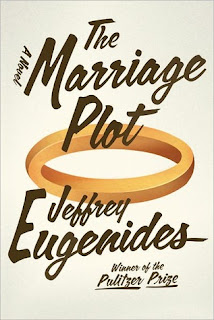spring things and what i read in march
 Well, Easter happened, so I like to think that spring has begun in earnest and I will now be all the things I didn’t get around to being during the past year. If Jesus can be reborn, why not me? Wait, that’s terrible logic. Jesus does all sorts of things I can’t do, like heal the sick and not include passive aggressive footnotes in his blog. But maybe I will at least manage to get ready for bikini season or something.
Well, Easter happened, so I like to think that spring has begun in earnest and I will now be all the things I didn’t get around to being during the past year. If Jesus can be reborn, why not me? Wait, that’s terrible logic. Jesus does all sorts of things I can’t do, like heal the sick and not include passive aggressive footnotes in his blog. But maybe I will at least manage to get ready for bikini season or something.
Here’s what I read in March, which seems like a long time ago now.
The Writing Life by Annie Dillard: A lovely extended prose poem on writing in the vein of Anne Lamott's Bird by Bird, though it actually predates the other book. Bird by Bird offers more practical advice, which either makes it more useful or more audacious, depending on your take (mine is mostly the former). At times Dillard's rustic metaphors almost made me cry--see her description of a sphinx moth fighting fate: "It gained height and lost, gained and lost, and always lost more than it gained, until its heavy body dragged in the water, and it drowned before my eyes without a splash." At other times, her depiction of writing as this torturous act that only the kookiest, most dedicated lunatic would pursue seemed disingenuous (a complaint I have about Lamott too). Writing is fun, a lot of the time. And no matter how spare Dillard's various writing cabins are, she has achieved the kind of success that affords one writing cabins, which is hard to ignore, though she is clearly and wisely trying to do just that.
The Last Summer of the Death Warriors by Francisco X. Stork: This YA novel chronicles the friendship between an orphaned teen and a kid dying of cancer. The former, Pancho, is angry and monosyllabic following his sister's mysterious death. The latter, DQ, is wise beyond his years--though Stork wisely complicates DQ's apparent Zen-ness late in the novel. The story is compelling, and Stork does an especially nice job making DQ's mother sympathetic, despite the fact that she abandoned her son only to suddenly take interest again once he became ill. But the writing felt a bit heavy-handed at times, and (once again) I had trouble with the dude who narrated the book on CD (he sounded like the guy who narrated A Million Little Pieces, which caused my brain to make unfortunate and unfair associations).
The Marriage Plot by Jeffrey Eugenides: I gave up trying to write down all my favorite quotes from all my favorite books sometime shortly after college, but this book (which is, perhaps not coincidentally, about college) reignited the impulse. I think The Marriage Plot is about applied philosophy—-trying to live the amazing ideas one reads about in important books—-which I devoted a lot of energy to in my youth, and which I still devote a significant amount to in my jaded early middle age. Perhaps like me, Eugenides’ characters are relatively privileged, hopelessly earnest and often tormented by love and duty. They’re also tormented by semiotics, which is a tough subject for earnest types living in an ironic age. They believe the ultimate goal is to approach life with “literary ruthlessness,” which is a depressing thought, and yet budding Victorianist Madeleine is also bolstered by Roland Barthes’ unique look at love’s ability to destroy its practitioners. Fairy tales are the stuff of both lovers and linguists.
Yet while I initially embraced this book as an important aid in my own post-grad school intellectual PTSD healing process, I ultimately loved it for old-fashioned reasons: the precise and clever language, the carefully chosen details (Eugenides can nail decade and class with a single hairbrush) and the beautifully flawed characters. I especially appreciated the manic depressive Leonard, who, during his first slide into depression, perceives the world as so dark that he convinces himself he must be going blind and immerses himself in medical texts accordingly. Exactly! This is what happens when you’re so used to paying attention to your brain that you don’t notice when your emotions stage a coup!
The story ends with something of a whimper, if a well thought out one. And when I posted favorite quotes on Facebook, my lit crit friends—-the ones I thought would relate—-openly mocked. Is it because they’re so post-post-post- ? Whatever. This novel is perfect for an anti-intellectual intellectual like me.



Comments